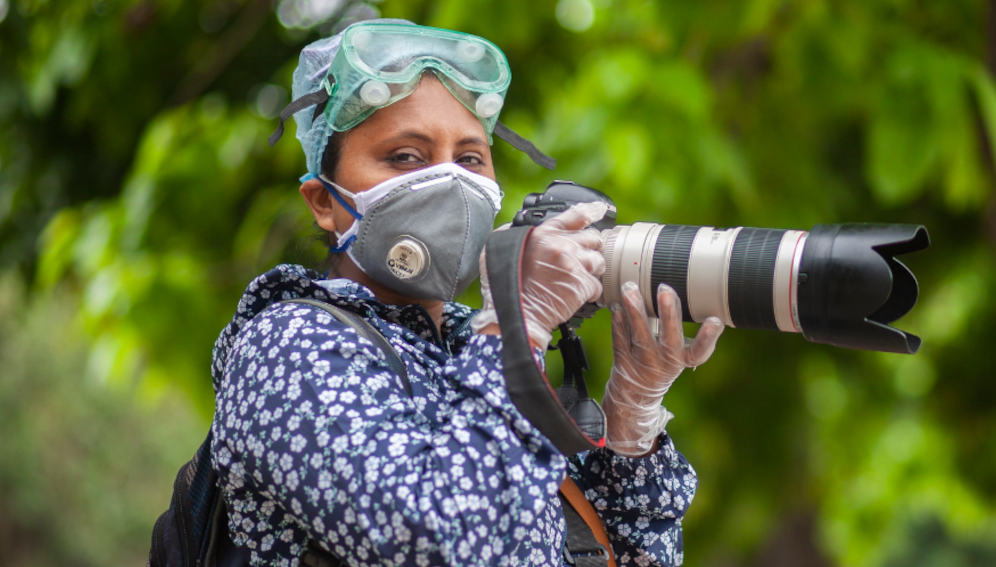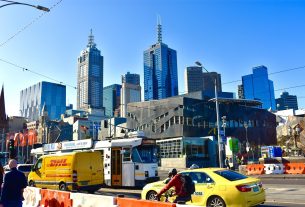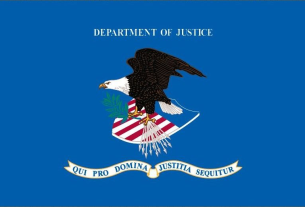The COVID-19 pandemic threw science journalists around the world into a frenzied, non-stop scrum of a news story that still has not relented. For the wider public, the pandemic also shone a bright light on the importance of science journalists.
Science journalism and COVID-19 is on the agenda at the Science Journalism Forum (30 August—2 September), where journalists and editors from around the world will present and discuss issues in the field in five languages.
Intended to boost connections and skills among science journalists, especially in developing nations, this year’s conference is fully virtual.
Deborah Blum, director of the Knight Science Journalism (KSJ) Program at the Massachusetts Institute of Technology, will deliver a keynote address on “12 Lessons for Science Journalists from the Pandemic” at the forum. She talks to SciDev.Net about how science journalists are learning how to keep up, get ahead, and get it right—whether covering the pandemic or not.
Deborah Blum, director, Knight Science Journalism Program at MIT
Did you find it difficult to prune the ‘lessons learned’ down to just 12?
It was difficult! To me, science journalism is always part of the news; there’s always a science angle to any news story. But for a lot of science journalists — who were not used to doing stories that got a lot of public attention and needed to be told in a way that was most accurate for that given day — that had all kinds of challenges.
One of the things we were confronted with was the real-time evolution of knowledge at a time when a whole bunch of people were using real-time evolution of knowledge against you. But the community of science journalists did a remarkable job of getting good information out there.
Some of the other lessons we learned are about navigating uncertainty and changing information, and the importance of fact-checking, to get it right going out the door.
Do any of these lessons particularly apply to developing nations and regions?
As one example: Historias sin Fronteras is a project in Latin America to do cross-border reporting. They looked at things like COVID, transgender medicine, the destruction of the Amazon. Latin American journalists from different countries came in to tell those stories — because the stories move across borders.
Not all of us are going to play on national or international stage, or work for the New York Times or the Associated Press. But you can actually rise to national attention by being the very best reporter you can be in your own backyard. The fact is these big media companies can’t do what you can do. Often, they parachute in and then leave. But the reporter on the ground who has a network of sources and freedom to report with accuracy and honesty, you have insights other people don’t have, and you’ll be a standout when people start asking around.
“When I’m talking to people who aren’t standing around the campfire of science and they say, “science makes me feel stupid”, that’s my favorite audience.”
Deborah Blum, director, Knight Science Journalism (KSJ) Program, MIT
The [Historias sin Fronteras] project that looked at an Amazonian highway, which was written in Spanish or Portuguese, was picked up by National Geographic. The reporter had so much good access that companies like National Geographic came asking for the story.
How does the Knight Science Journalism Program support international journalists?
Our regular fellowship program is international, and the class that we just deferred is 60 per cent international. We bring in fellows from around the world and train them.
We have two other programs that we’re doing virtually: a science editing workshop, to train editors, and a fact-checking workshop, both free. What’s really interesting is that the audience of both workshops is largely international. For the virtual fact-checking workshop we did in June, we had 400 people apply and were able to bring in 200. More than 40 countries were represented, with a large number from Southeast Asia and the Middle East.
It struck me how many people got up around the world at 2am so that they could do this.
How do you think the public’s relationship with science and science journalism has shifted?
There is a push and pull between science and society. Science pushes in one direction and, not surprisingly, society often pushes back. The pushes are not always in the way we want to go.
When I’m talking to people who aren’t standing around the campfire of science and they say, “science makes me feel stupid”, that’s my favorite audience. They’re the most interesting, because they’re the hardest. They’re important, they influence policy, and influence the lives of the rest of us.
[The pandemic] has made us more centre stage in a way that will have some lasting effect. It’s shone a bright light on the importance of what we do, and that is also going to have some lasting effect. Unless we screw it up.
Deborah Blum will be speaking at the Science Journalism Forum on 1 September.
This piece was produced by SciDev.Net’s Global desk.



